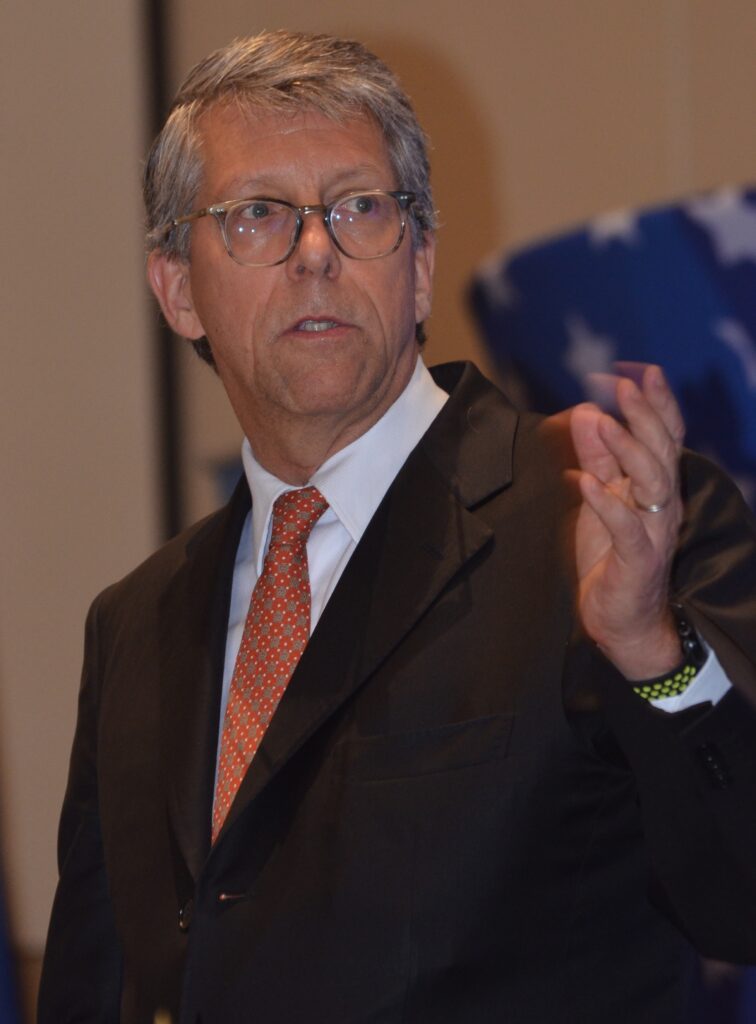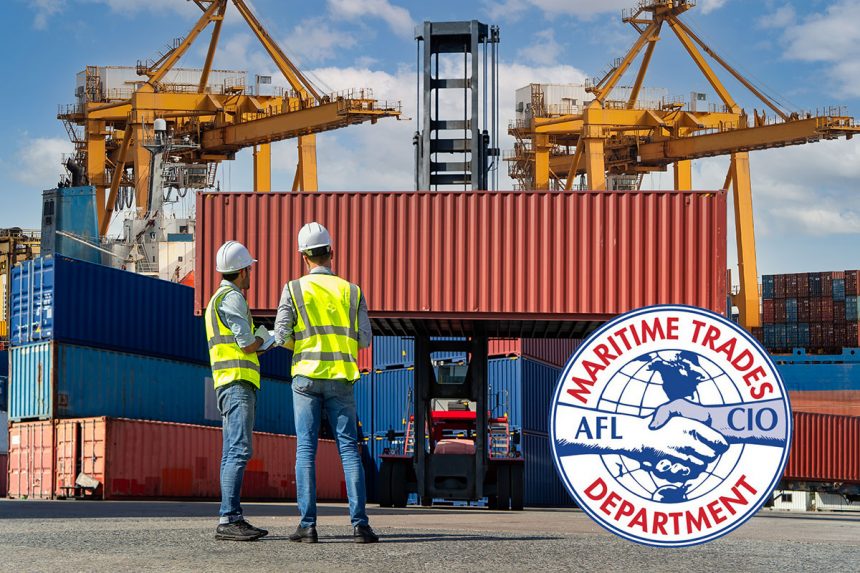
The top executive at a major U.S.-flag shipping company told the MTD Executive Board he is confident that all components of the industry are working cooperatively to promote American mariners and vessels.
Sam Norton, president and CEO of Overseas Shipholding Group (OSG), addressed the board February 21. Besides commending the collaborative efforts of labor, management and government, he described his company’s strong emphasis on safety.
Norton also stated that OSG is committed to helping expand the U.S. tanker fleet as well as providing long-term job opportunities for American crews.
“The main message that I want to share with you is, although I’m mindful that in history, it has not always been the case that labor and management have been seeing eye-to-eye, and there are definitely times when we each have our own respective positions that we have to mind. Nonetheless, my experience at OSG has left with me a very strong feeling that our partnership with labor today is as strong as it’s ever been,” Norton said.
Next, Norton explained that OSG maintains more than 450 billets that support more than 1,100 union jobs. The company is an owner/operator of tankers and ATBs (articulated tug-barges), 19 of which sail in the Jones Act trade. “We’re very proud to be a very large employer and a supporter of the unions,” he noted.
He then described safety as “our biggest job: making sure that our ships are well-managed, safe working environments and that everyone who participates in those environments understands the significance of keeping an eye out for all of the people that work around them and maintaining a high level of situational awareness of all times.”
Norton said that communications are “where I think our interests are indeed most closely aligned. Recognizing the things that are very important to the Jones Act, the U.S. flag, national security, making sure that we work together to communicate our priorities and communicate the things that make our organizations work well together.”
Describing OSG’s future, Norton reported the company is working to expand possibilities for U.S. vessels outside of the Jones Act fleet. He said the industry as a whole must address what is “a recognized significant shortfall of tanker capacity to support readiness and sealift requirements.”
Expanding the U.S. tanker fleet is “an area where I see a confluence of our primary objectives – yours and ours – together with MarAd’s (the U.S. Maritime Administration),” Norton said.
He added, “It is our very strong contention that the single greatest resource that needs to be developed in anticipation of meeting the needs of the Defense Department and national security in the future is developing experienced and qualified manpower to be able to man the equipment that would be needed in a time of crisis.”
Like Maritime Administrator Mark Buzby discussed earlier that same day, Norton touched on the need to recapitalize the sealift fleet. He also stressed “the importance of being able to provide credible employment opportunities.… This is something that is really critical to all of our futures and something that we as an organization are committed to…. We want to work in partnership with MarAd and with you to be able to provide the means and the ongoing commercial ability to operate those ships so that we can build those jobs.”

